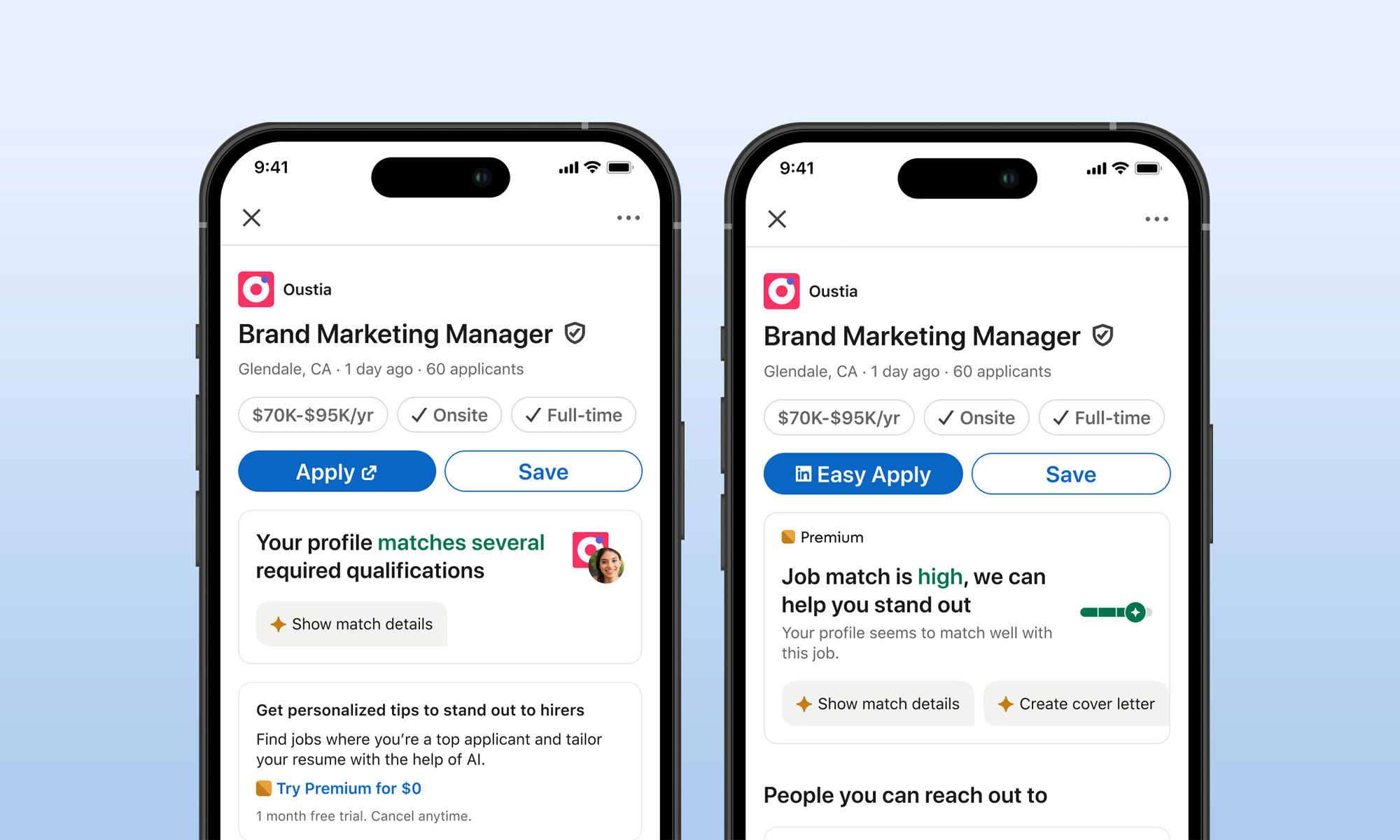News
LinkedIn Is Trying To Help You Apply For Fewer Jobs
The platform’s new AI-powered “Job Match” aims to guide users toward roles they’re qualified for and away from those they aren’t.

If you’ve ever spoken to anyone hunting for a job lately, you’ve probably heard about how difficult it is to even secure an interview. According to LinkedIn, one of the reasons for this struggle is that too many people are applying for roles they aren’t qualified for, making it harder for strong candidates to get noticed.
To tackle this, LinkedIn is rolling out a new AI-powered tool called “Job Match” — a feature designed to bridge the gap between job seekers and recruiters by offering detailed summaries that help users understand how well they fit a particular role.
Unlike simple keyword matching tools, “Job Match” takes a more nuanced approach by using AI to analyze a candidate’s overall experience and compare it with the qualifications listed in a job description. The idea isn’t just to help users find roles they’re qualified for, but also to steer them away from applying to jobs where they might fall short.
The feature is accessible to all LinkedIn users, but those with LinkedIn Premium get extra perks, such as more detailed insights about their job match level. In the future, recruiters will also benefit, as the tool aims to surface more qualified candidates, reducing the chances of strong applicants being overlooked.
Also Read: Foundster Is Dubai’s New AI-Driven Company Setup Service
Whether this new approach will make life easier for job seekers is still up for debate. The last couple of years have been brutal for many industries, with massive layoffs still a regular occurrence at the start of 2025. All this means even fiercer competition for fewer openings — something no AI tool can ever hope to completely solve.
However, LinkedIn product manager Rohan Rajiv believes the lack of transparency in hiring is a big part of the issue, pointing out that early testing of “Job Match” showed that a “non-trivial chunk” of mismatches between candidates and jobs is easier to fix than people realize. “I think there’s a portion of this that will always be labor market dynamics, but I would argue that there’s a significant portion of this that is just pure lack of transparency,” he said.
News
Rabbit Expands Hyperlocal Delivery Service In Saudi Arabia
The e-commerce startup is aiming to tap into the Kingdom’s underdeveloped e-grocery sector with a tech-first, locally rooted strategy.

Rabbit, an Egyptian-born hyperlocal e-commerce startup, is expanding into the Saudi Arabian market, setting its sights on delivering 20 million items across major cities by 2026.
The company, founded in 2021, is already operational in the Kingdom, with its regional headquarters now open in Riyadh and an established network of strategically located fulfillment centers — commonly known as “dark stores” — across the capital.
The timing is strategic: Saudi Arabia’s online grocery transactions currently sit at 1.3%, notably behind the UAE (5.3%) and the United States (4.8%). With the Kingdom’s food and grocery market estimated at $60 billion, even a modest increase in online adoption could create a multi-billion-dollar opportunity.
Rabbit also sees a clear alignment between its business goals and Saudi Arabia’s Vision 2030, which aims to boost retail sector innovation, support small and medium-sized enterprises, attract foreign investment, and develop a robust digital economy.
The company’s e-commerce model is based on speed and efficiency. Delivery of anything from groceries and snacks to cosmetics and household staples is promised in 20 minutes or less, facilitated by a tightly optimized logistics system — a crucial component in a sector where profit margins and delivery expectations are razor-thin.
Despite the challenges, Rabbit has already found its stride in Egypt. In just over three years, the app has been used by 1.4 million customers to deliver more than 40 million items. Revenue has surged, growing more than eightfold in the past two years alone.
Also Read: Top E-Commerce Websites In The Middle East In 2025
CEO and Co-Founder Ahmad Yousry commented: “We are delighted to announce Rabbit’s expansion into the Kingdom. We pride ourselves on being a hyperlocal company, bringing our bleeding-edge tech and experience to transform the grocery shopping experience for Saudi households, and delivering the best products – especially local favorites, in just 20 minutes”.
The company’s growth strategy avoids the pitfalls of over-reliance on aggressive discounting. Instead, Rabbit leans on operational efficiency, customer retention, and smart scaling. The approach is paying off, having already attracted major investment from the likes of Lorax Capital Partners, Global Ventures, Raed Ventures, and Beltone Venture Capital, alongside earlier investors such as Global Founders Capital, Goodwater Capital, and Hub71.























